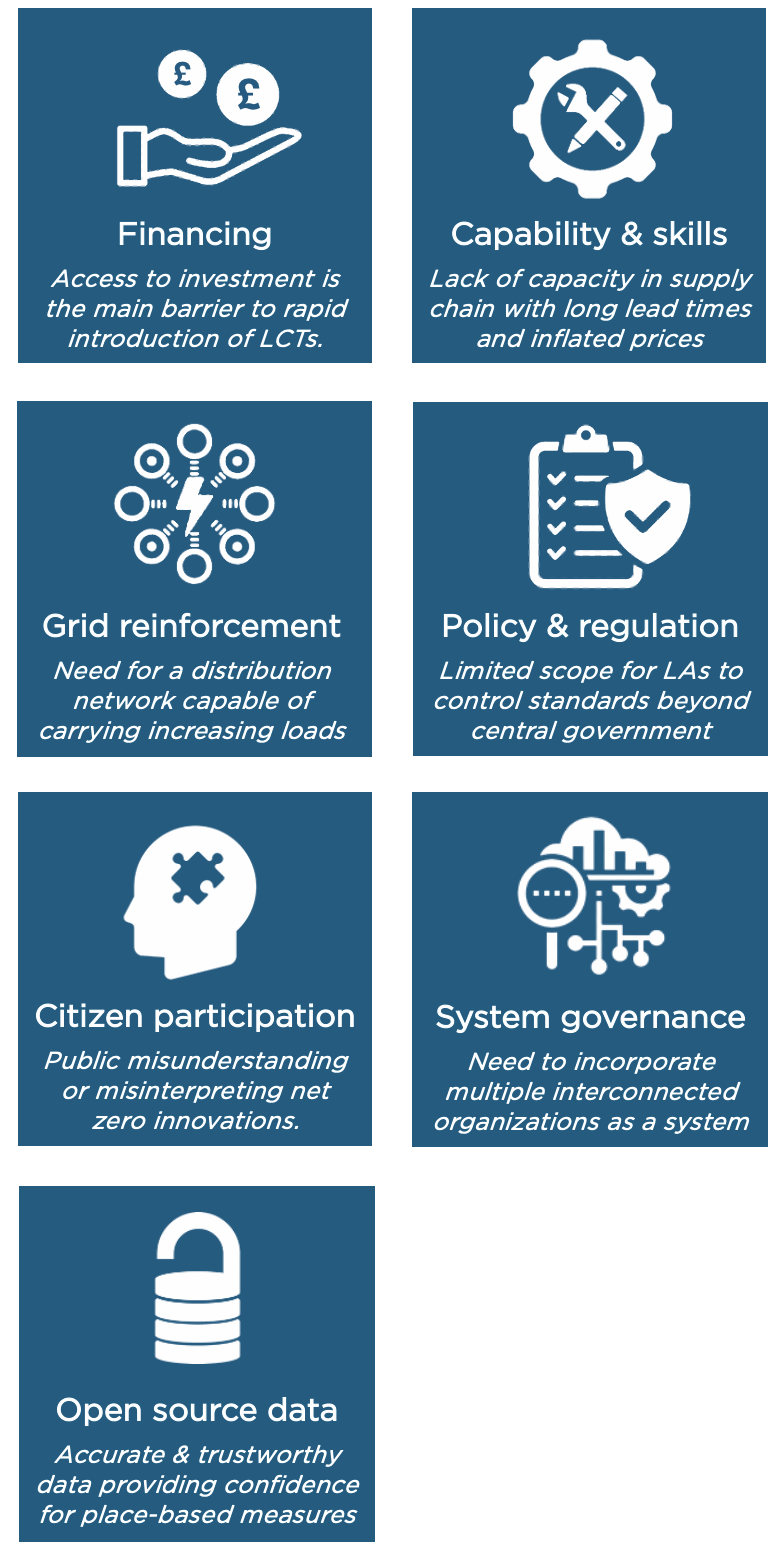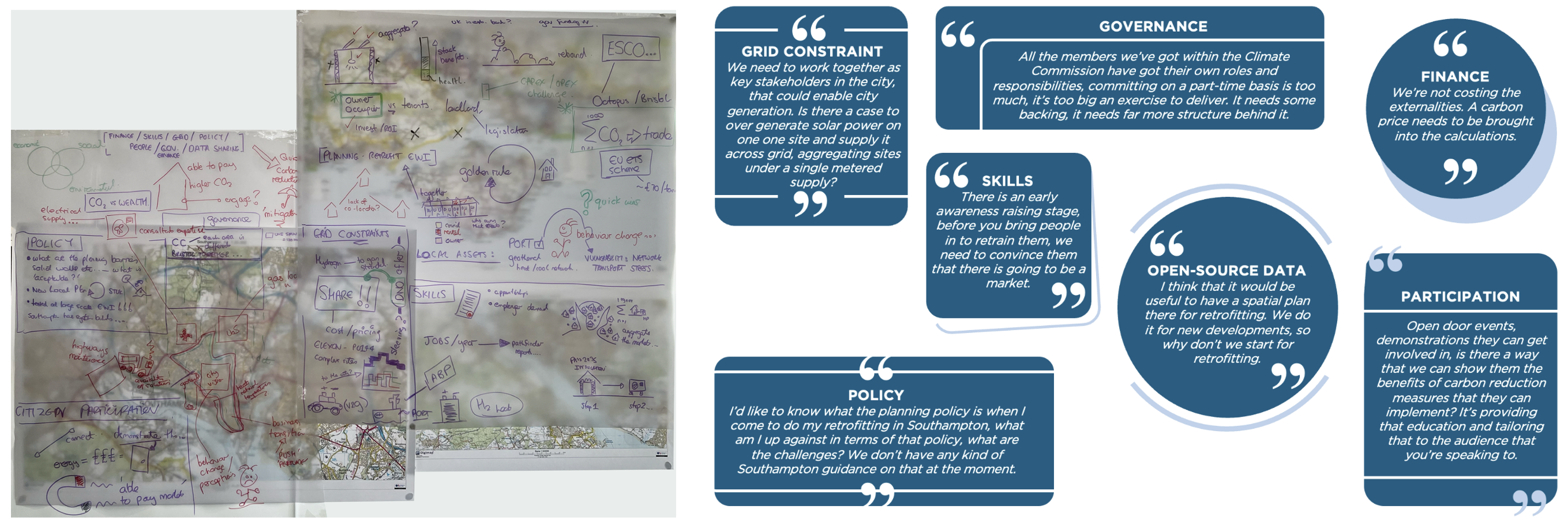Pioneering net zero delivery for the City of Southampton
Non technical barriers on the pathway to net zero

The Energy and Climate Change Division are partnered with Southampton City Council and NquiringMinds on the Innovate UK Net zero living: Pathfinder Places project, Pioneering net zero for the City of Southampton. The aim of the competition is to support up to 30 places in developing a plan, with local authorities, to accelerate their transition to net zero through developing innovative solutions to overcome non-technical systemic barriers to implementation (see graphic).
Cities are responsible for approximately 75% of CO2 emissions, and hence can play a critical role in achieving net-zero carbon. Decisions made by national and local governments, citizens, businesses, investors as well as other actors greatly impact resources and their consumption in cities requiring optimised provisions of services to support better infrastructure and growing populations in a period of increasing climate change impacts.
The city of Southampton is no different, it has a variety of specific challenges and opportunities which make it an ideal city to be propelled to net-zero, by 2050 (UK target) or earlier. Southampton has the power to use its political, economic, financial, and social influence to protect the environment and sustainably accelerate the city to net-zero. We will build on these characteristics, opportunities and challenges in a combined techno-economic methodology coupled with stakeholder engagements to support coherent studies to address non-technical barriers to achieve net zero.
The methodology and the derived strategies will allow an effective Plan with a coherently structured programme aligned with the vision to deliver net-zero at city scale. The Plan will be delivered through a capable team with high level buy-in from the partners (including the local authority) and stakeholders, coupled with the required levels of resources.
As part of the project ECCD hosted a hybrid workshop with local stakeholders from the Southampton Energy Partnership, Climate Commission and Solent Cluster to discuss possible approaches/solutions for Southampton’s non-technical barriers on the pathway to net zero. In addition, through an online survey, participants were asked to (i) rate each barriers dependencies, (ii) rank their relative importance and (iii) benchmark each barrier and weight them against each other.


